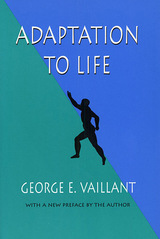
Between 1939 and 1942, one of America's leading universities recruited 268 of its healthiest and most promising undergraduates to participate in a revolutionary new study of the human life cycle. The originators of the program, which came to be known as the Grant Study, felt that medical research was too heavily weighted in the direction of disease, and their intent was to chart the ways in which a group of promising individuals coped with their lives over the course of many years.
Nearly forty years later, George E. Vaillant, director of the Study, took the measure of the Grant Study men. The result was the compelling, provocative classic, Adaptation to Life, which poses fundamental questions about the individual differences in confronting life's stresses. Why do some of us cope so well with the portion life offers us, while others, who have had similar advantages (or disadvantages), cope badly or not at all? Are there ways we can effectively alter those patterns of behavior that make us unhappy, unhealthy, and unwise?
George Vaillant discusses these and other questions in terms of a clearly defined scheme of "adaptive mechanisms" that are rated mature, neurotic, immature, or psychotic, and illustrates, with case histories, each method of coping.
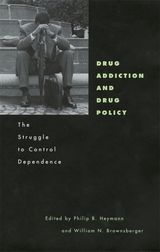
This book is the culmination of five years of impassioned conversations among distinguished scholars in law, public policy, medicine, and biopsychology, about the most difficult questions in drug policy and the study of addictions. As these intensely argued chapters show, the obvious answers are always alluring but frequently wrong.
Do drug addicts have an illness, or is their addiction under their control? Should they be treated as patients, or as criminals? Challenging the conventional wisdom in both the psychiatric community and the enforcement community, the authors show the falsity of these standard dichotomies. They argue that the real question is how coercion and support can be used together to steer addicts toward productive life.
Written in clear and forceful language, without ideological blinkers and with close attention to empirical data, this book has something to teach both novice and expert in the fields of drug addiction and drug policy. The authors' resistance to sloganeering from right or left will raise the quality of public discussion of a complex issue, and contribute to the management of one of the most painful and enduring problems of American society.


Four years in the making, this entirely revised edition of a classic text provides a lucid and erudite review of the state of psychiatry today. Since the publication of the last edition in 1988, remarkable advances have been made in laboratory and clinical psychiatric research; the fourth edition of the Diagnostic and Statistical Manual of Mental Disorders (DSM-IV) has been published; managed care has radically altered the provision of all medical care; and the profession of psychiatry has come to a sophisticated new understanding of the interplay between psychiatric knowledge and issues in the larger society.
All these changes are reflected in the new text. Of particular interest are the masterful and lucid reviews of current knowledge in the neurobiology of mental disorders, in the section on brain and behavior. The section on psychopathology clarifies newly emerging diagnostic categories and offers new insight into addictions, anxiety disorders, and disorders of cognition.
Like its predecessors, The Harvard Guide To Psychiatry focuses throughout on the relationship between the physician and the patient. Its unspoken motto is that the art of psychiatry is as important as the science. For this recognition of what is relevant clinically as well as technically, this book will be an essential reference and support for both the new and the experienced psychiatrist.
This new edition includes up-to-date discussions of:DSM-IVManaged careImprovements in neuroimagingThe increased use of psychoactive drugsRecent advances in molecular biologyResearch on the biology of schizophrenia, depression, anxiety, and addictive disorders

Even in this age of working mothers, the role of fathering is often overlooked. This book illuminates the realities of fathering by presenting the results of a unique empirical study conducted over four decades and covering four generations of fathers and children. Through case studies and data analysis, John Snarey demonstrates that men's care for their families reaps immense and long-lasting benefits—for themselves, for their offspring, and for future generations.
In striking contrast to research that considers fathers to be obscure or peripheral figures, Snarey reveals their position as central caregivers and characterizes their most effective nurturing behaviors. He examines fathers' involvement in three vital realms of their children's development: social-emotional, intellectual-academic, and physical-athletic. Looking specifically at fathers' relationships with their oldest children during the first two decades of their lives, Snarey addresses issues of fathering in both childhood and adolescence. He presents portraits of individual father-son and father-daughter relationships, and measures and defines the ways in which “good” fathers are constructively engaged in and supportive of children's growth. Snarey also focuses on the fathers themselves. Moving back in time, he explores how men's boyhood experiences with their own fathers affect their subsequent parenting styles. Then, cycling forward, he observes how various fathering experiences affect men at mid-life, in their marriages, and throughout their careers. His study also considers how the threat of infertility impacts fathers' generativity—their ability to care for the next generation.
Within the current wave of scholarly interest in fathering, this is the first comprehensive longitudinal study of the topic. It is firmly grounded in Erik H. Erikson's model of psychosocial generativity, and adds a significant dimension to Erikson's theory by successfully applying it to empirical research. Snarey makes a major contribution to male, child, family, and developmental psychology, and addresses issues of ongoing concern in the fields of sociology and education. How Fathers Care for the Next Generation offers hope that men can, indeed, rework their past and provide better fathering than they themselves received.

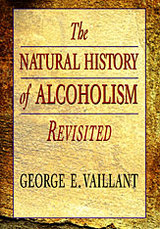
When The Natural History of Alcoholism was first published in 1983, it was acclaimed in the press as the single most important contribution to the literature on alcoholism since the first edition of Alcoholic Anonymous’s Big Book. George Vaillant took on the crucial questions of whether alcoholism is a symptom or a disease, whether it is progressive, whether alcoholics differ from others before the onset of their alcoholism, and whether alcoholics can safely drink. Based on an evaluation of more than 600 individuals followed for over forty years, Vaillant’s monumental study offered new and authoritative answers to all of these questions.
In this updated version of his classic book, Vaillant returns to the same subjects with the perspective gained from fifteen years of further follow-up. Alcoholics who had been studied to age 50 in the earlier book have now reached age 65 and beyond, and Vaillant reassesses what we know about alcoholism in light of both their experiences and the many new studies of the disease by other researchers. The result is a sharper focus on the nature and course of this devastating disorder as well as a sounder foundation for the assessment of various treatments.

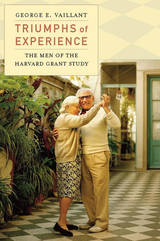
At a time when many people around the world are living into their tenth decade, the longest longitudinal study of human development ever undertaken offers some welcome news for the new old age: our lives continue to evolve in our later years, and often become more fulfilling than before.
Begun in 1938, the Grant Study of Adult Development charted the physical and emotional health of over 200 men, starting with their undergraduate days. The now-classic Adaptation to Life reported on the men’s lives up to age 55 and helped us understand adult maturation. Now George Vaillant follows the men into their nineties, documenting for the first time what it is like to flourish far beyond conventional retirement.
Reporting on all aspects of male life, including relationships, politics and religion, coping strategies, and alcohol use (its abuse being by far the greatest disruptor of health and happiness for the study’s subjects), Triumphs of Experience shares a number of surprising findings. For example, the people who do well in old age did not necessarily do so well in midlife, and vice versa. While the study confirms that recovery from a lousy childhood is possible, memories of a happy childhood are a lifelong source of strength. Marriages bring much more contentment after age 70, and physical aging after 80 is determined less by heredity than by habits formed prior to age 50. The credit for growing old with grace and vitality, it seems, goes more to ourselves than to our stellar genetic makeup.
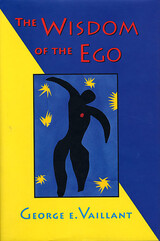
READERS
Browse our collection.
PUBLISHERS
See BiblioVault's publisher services.
STUDENT SERVICES
Files for college accessibility offices.
UChicago Accessibility Resources
home | accessibility | search | about | contact us
BiblioVault ® 2001 - 2024
The University of Chicago Press









